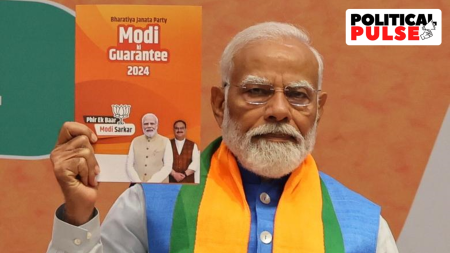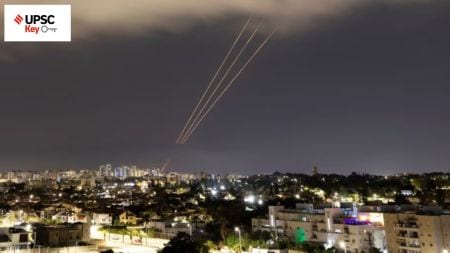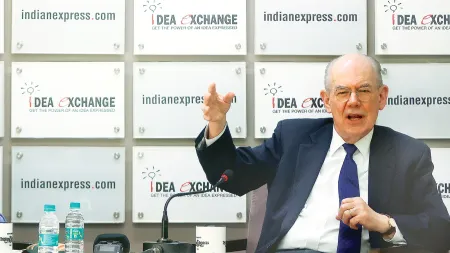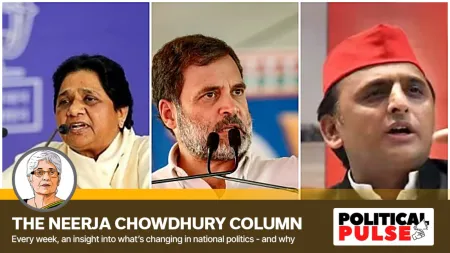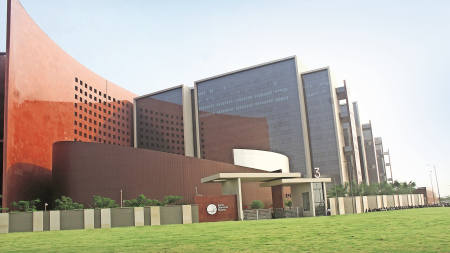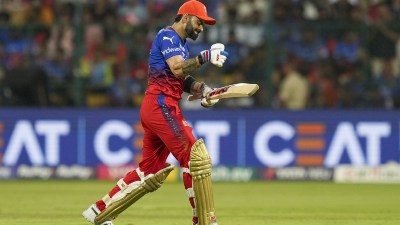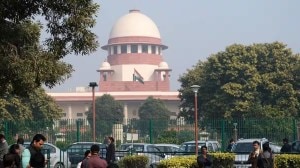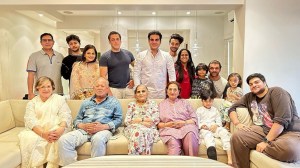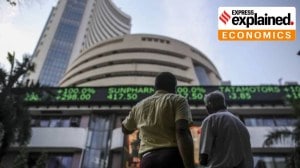- India
- International
Mangalore and Dakshina Kannada: Development issues aside, religion plays heavy on a voter’s mind here
Karnataka elections: During one such brief autorickshaw ride in Mangalore city, the heart of the communally-sensitive Dakshina Kannada region, a driver stated: "Hindus will die if BJP doesn't return (to power).”
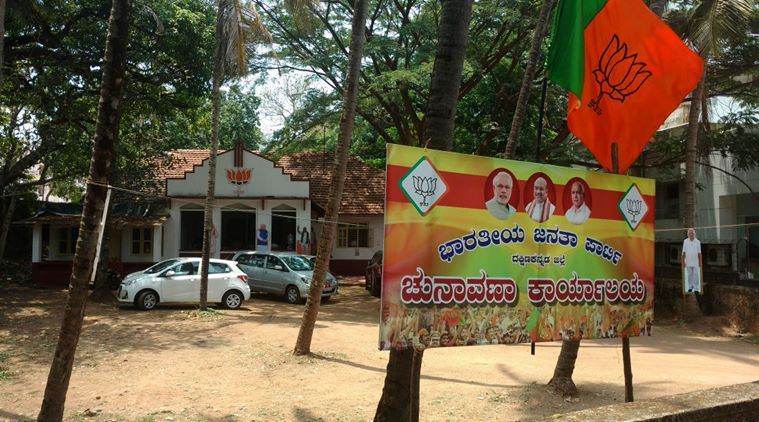 Karnataka elections: For the BJP, the extensive network of the Sangh Parivar and its affiliate organisations, penetrating the ground level, have come of great use. (Express photo by Vishnu Varma)
Karnataka elections: For the BJP, the extensive network of the Sangh Parivar and its affiliate organisations, penetrating the ground level, have come of great use. (Express photo by Vishnu Varma)
Autorickshaw drivers are often called a reliable barometer of political sentiments in a constituency. They scour the area extensively, have daily conversations with the common man in different parts and are known to be able to gauge the mood of the average voter. During one such brief autorickshaw ride in Mangalore city, the heart of the communally-sensitive Dakshina Kannada region, a driver stated: “Hindus will die if BJP doesn’t return (to power).”
Such sudden declarations are a part and parcel of the political mood in the three constituencies covering parts of Mangalore city and the wider Dakshina Kannada belt of coastal Karnataka. Matters of development and corruption are discussed on a daily basis, during election meetings, corner talks, door-to-door visits by candidates of the two leading parties and Independents and rebel candidates. But just underneath the surface, hidden from most, are the fears of polarisation and religion becoming a tool to attract votes. The autorickshaw driver’s statement may not find support in several quarters, especially among the minorities, in the area but the reality is that it exists.
Also read | Live in Karnataka — IndianExpress.com traverses three constituencies today (May 4) as part of its election coverage
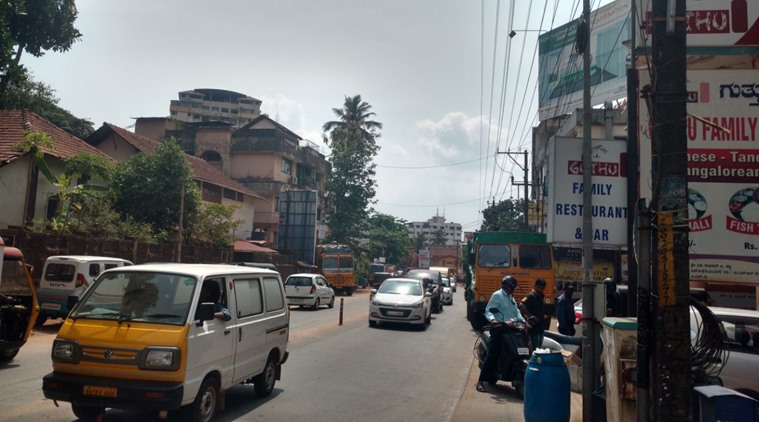 The Mangalore South constituency is represented by Congress MLA JR Lobo, who secured over 50 per cent of the votes in the 2013 Assembly elections. (Express photo by Vishnu Varma)
The Mangalore South constituency is represented by Congress MLA JR Lobo, who secured over 50 per cent of the votes in the 2013 Assembly elections. (Express photo by Vishnu Varma)
For long, the coastal belt, comprising the districts of Dakshina Kannada, Udupi and Uttara Kannada, has been known as a ‘communal laboratory’ dishing out several myopic versions of Hindutva and fringe Muslim outfits from time to time. For the BJP, the extensive network of the Sangh Parivar and its affiliate organisations, penetrating the ground level, have come of great use. In 2014, despite a huge setback in the Assembly elections the previous year, the party was able to reverse those trends to send its MPs from all three districts, all of them with margins of more than one lakh votes. Local leaders of the BJP are employing to great lengths these MPs along with the vistaraks, panna pramukhs and booth pramukhs at the grassroots level to drive home the point.
But as the 2013 election results suggest, when it comes to Assembly elections, the BJP comes across on a weaker footing against the Congress. In Dakshina Kannada, the saffron party lost seven out of the eight seats, shocking the party’s cadre. Its victory in the lone seat came with a margin of just over a 1,000 votes. Local journalists on the ground indicated that while a similar 7-1 sweep in the district may not repeat, the Congress could very well hold on to 4-5 seats in the district. That result will deeply antagonise both the RSS and BJP ranks as they look forward to grabbing most seats in this region to balance the losses they are likely to face in traditionally weaker areas like Mandya, Mysore and Chamarajanagar.

In Mangalore city, which has seen attacks on Christian churches and the infamous pub incident in the last decade, votes of the minorities — Christians and Muslims — will come to count. While the Catholic voters, who reside in the city and whose numbers are close to 50,000, are not historically enthusiastic about voting, in 2013, there was a noted surge in the community’s voting which could have been instrumental in the victory of Congress candidate JR Lobo.
“Earlier in the past, the Christians were not that active in voting. But last time, when they got a hit, they started coming out. They understood that ballot is more crucial than anything else. This time also, I expect good turnout not just by Christians, but by every community,” Lobo said.
Even the CPI(M), the once-undivided version of which had even won this constituency in the 50s but currently remains a shadow of its former self, underlined ‘communal harmony’ as a defining issue in the constituency. The party barely got 3,000 votes last time, but its candidate Sunil Kumar Bajal is campaigning hard to attract votes of minorities and the working class.
While there’s no doubt that peace and stability have prevailed in the city in the last five years, the same can’t be said as one traverses further towards the rural hinterlands. Here, communal undertones persist. Civic issues like drainage, transport and traffic problems may remain, but on the average voter’s mind here, it looks like religion will weigh heavily.
A parish priest puts it succinctly, “It is important that voters vote for a representative who builds bridges between communities. Because growth can only happen when people are together, not when there’s division.”
Apr 16: Latest News
- 01
- 02
- 03
- 04
- 05




